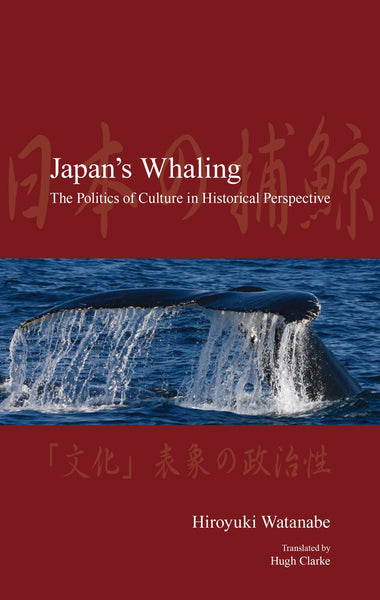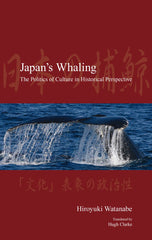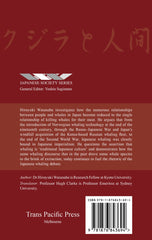Japan's Whaling
Many In Stock
Hiroyuki Watanabe investigates how the numerous relationships between people and whales in Japan become reduced to the single relationship of killing whales for their meat. He argues that from the introduction of Norwegian whaling technology at the end of the nineteenth century, through the Russo-Japanese War and Japan's windfall acquisition of the Korea-based Russian whaling fleet, to the end of the Second World War, Japanese whaling was closely bound to Japanese imperialism. He questions the assertion that whaling is 'traditional Japanese culture' and demonstrates how the same whaling discourse that in the past drove some whale species to the brink of extinction, today continues to fuel the rhetoric of the Japanese whaling debate.
Is Japanese whaling based on national culture and tradition?
Sociologist Hiroyuki Watanabe challenges this question by examining the history of whaling in modern Japan and looking at the wide range of arguments within the country over the decades. The book provides a detailed account of anti-whaling disturbances organized by fishermen in the early 20th century, presents successful attempts to designate whales as protected species in pre-war years, and shows regional differences in whale-meat eating practices. Through a sober and critical analysis of the 'cultural' defense of Japan's whaling industry, the book reveals that whaling has often been linked with Japanese expansionist policies overseas. Watanabe also explores the relations between human beings and whales and offers practical proposals.
About Editors and Authors
WATANABE Hiroyuki is Associate Professor in the Faculty of Agriculture, Ryukoku University. He holds a PhD in Agricultural Science from Kyoto University, and his research interests include environmental sociology and environmental history. He specializes in issues surrounding the practice of whaling.
Table of contents
Preface
Conventions adopted in this book
Prologue: The Aim of this Book
1 Workers and the Introduction of Technology
2 Disturbance as an Interlacing of Experience: Analysis of the riot incident at the same station of the Tōyō Whaling Company
3 The Designation of Whale Species as Natural Monuments: How far does industrial use come into consideration?
4 The Promotion of Whale Meat in Early Modern Japan
5 In Search of the Logic of Overfishing: An analysis of whaling discourse
6 The Politics of the Representation of ‘Culture’
Postscript
Notes
Appendix
Bibliography
Index


